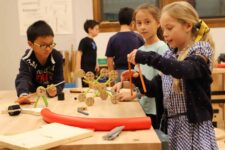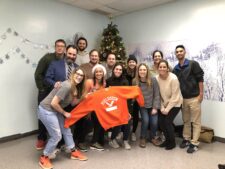They say you should never stop learning, and at the Ethical Culture Fieldston School, teachers take that mantra seriously. While students enjoyed a day off earlier this October, faculty in all four divisions were engaged in professional development. Professional development days offer an opportunity for teachers to broaden or deepen their curricula, especially with regards to diversity, equity, and inclusion. At Ethical Culture, faculty break from their morning sessions to spend an afternoon of self-enrichment at museums, cultural centers, and walking tours — in some cases, just a few minutes’ walk from school.
Here, we take a look into three teachers’ experiences.
Central Park through an Ethical Lens
Alex Checkman joined the rest of the 1st Grade team on a tour of Central Park, where the group examined in particular the lives of New Yorkers who were forcibly displaced by the construction of the park. The experience is particularly relevant to the 1st Grade curriculum, as Checkman explains: “In 1st Grade, we use Central Park as a lens through which to explore how individuals and communities organize to meet the needs of its members.”
In 1825, the land on which Central Park now stands was Seneca Village, a predominantly African-American settlement. At its peak, Seneca Village was home to over 260 residents and 80 buildings, including churches, a school, and a hospital. Many residents owned their homes and had lived in them for three or more years, giving them the legal right to vote. Beginning in 1855, however, the city government appropriated this land, evicting residents and demolishing the factories and farms that constituted many of their livelihoods.
The backstory of one of New York’s most cherished green spaces is disturbing, and this paradox is something Checkman and her colleagues hope to share with students at ECFS as they develop an understanding of their communities. “We feel that we have an ethical obligation to not only engage our students in conversations about the importance of nature and the wonderful resource that we have in Central Park,” says Checkman, “but also to engage in conversations about the park’s history.”
Centering Indigenous Voices at the Museum of the City of New York
Language and Learning Specialist Eliana Rivera’s professional development experience took her across Central Park and up to East Harlem, where she spent the afternoon in the Museum of the City of New York. There, she focused on an exhibit entitled “Urban Indian: Native New York Now,” a multimedia collection showcasing over thirty years of videos, photos, and art produced by individuals who identify as Native Americans.
One video struck Rivera in particular: members of the Indigenous Kinship Collective, a group for Native American women, discussed how their membership in organizations for First Nations women empowered them with a sense of belonging in Mannahatta, the name given by the Lenape people to the area we now call Manhattan. A separate documentary inspired awe at the great lengths Native Americans have gone to preserve their culture in the face of systemic discrimination.
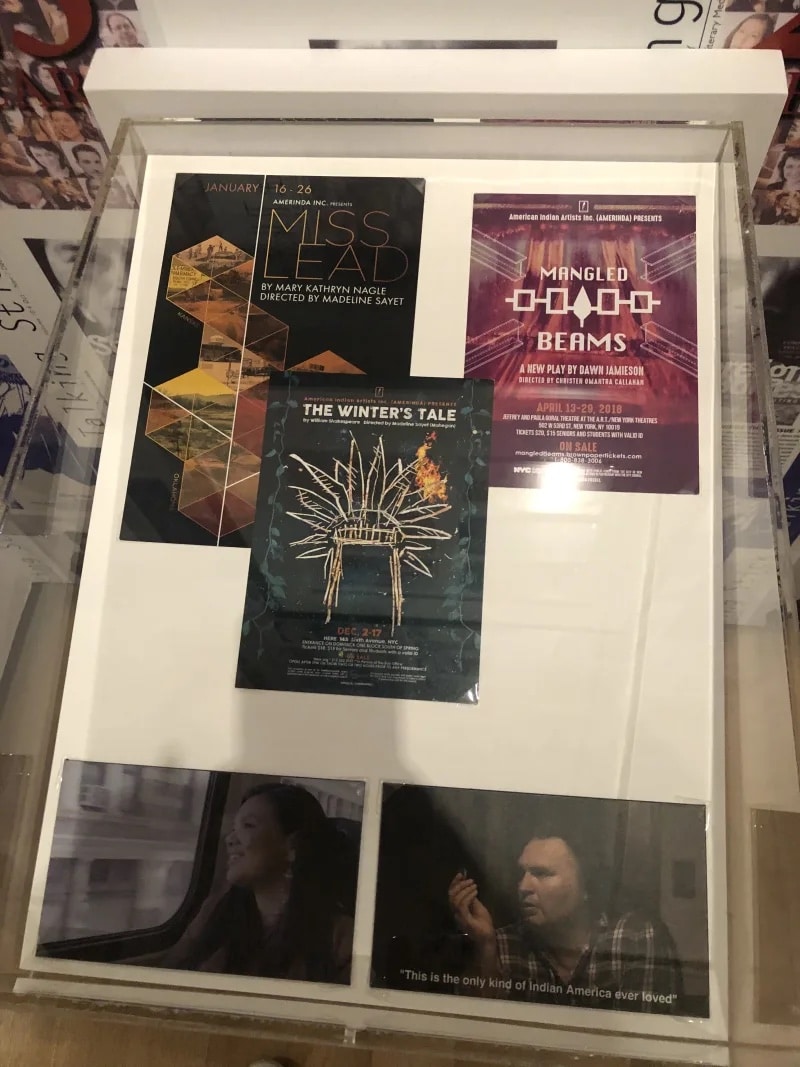
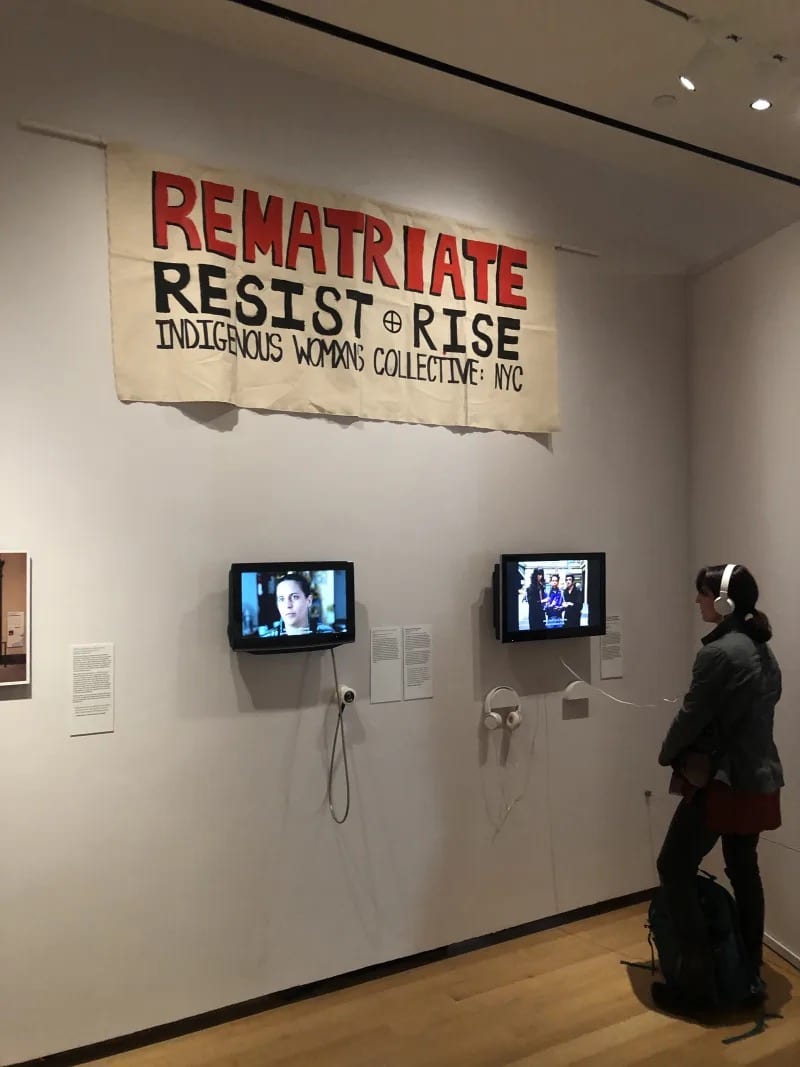
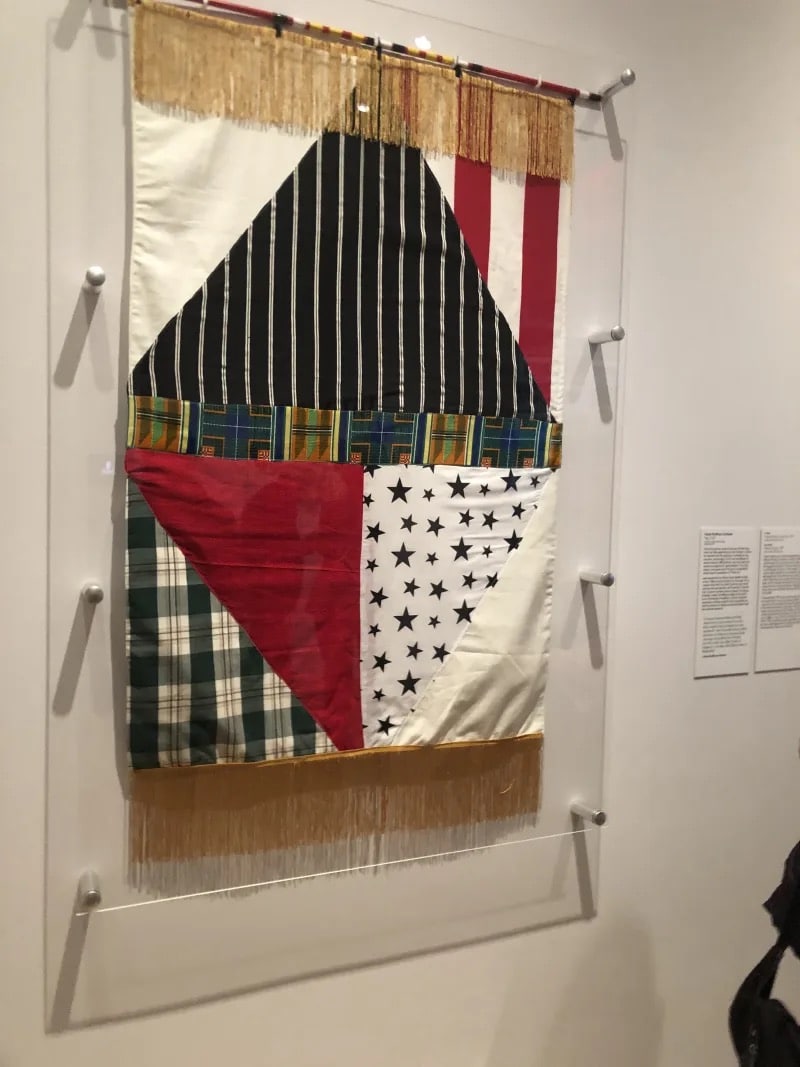
Despite its poignancy, “Urban Indian” is a small exhibit, a fact that reminded Rivera of the greater collective effort needed to bring the voices of Native Americans to the forefront. Some of that centering of indigenous voices is happening inside the classroom at the Ethical Culture Fieldston School, where the study of Mannahatta forms the basis of the 3rd Grade social studies curriculum. “In recent years, 3rd Grade teachers have made changes to the Native American study in order to reflect our commitment to making social studies not just about events that happened long ago, but also pertinent and connected to the present day,” says Rivera.
“As we continue to explore activism, identity, empowerment, social justice, and social responsibility in the classroom, it is imperative that our own knowledge base continues to evolve on the topics we explore so we can better help our students in their own understanding of how all these pieces come together and the pivotal role they have in shaping the future.”
A Walking Tour Teaches a Lesson on Empowerment
Kelton Cumberbatch, who teaches P.E. at Ethical Culture, went on a walking tour with the Black Gotham Experience that explored the history of the African diaspora in New York City, a narrative that extends as far back as the 1600s.
“The experience reminds you of the erasure of the black experience, the need for documentation, and the pedagogical importance of telling these stories,” says Cumberbatch. “As a teacher, I felt the tour challenged us to think about the narratives we tell and how much of that narrative is so often one-sided.”
That prioritization of inclusivity, a core tenet of progressive education at ECFS, informs the various curricular pieces the P.E. department works on throughout the year, including the upcoming ECS-a-thon. The event, modeled after the New York City Marathon, pushes students to run outdoors, but several modifications — pairing students with a running buddy, for example, or creating different start and end points to eliminate the presence of a singular finish line — transform it into a non-competitive experience. In his morning professional development session with the P.E. department, Cumberbatch brainstormed ways to provide greater visibility to different types of runners.
And for Cumberbatch, his professional development field trip offered a salient reminder of why teachers teach. “Learning comes to life when you create an experience and tell a story from a place of empathy for the learner,” says Cumberbatch. “For me, that was the biggest takeaway.”
